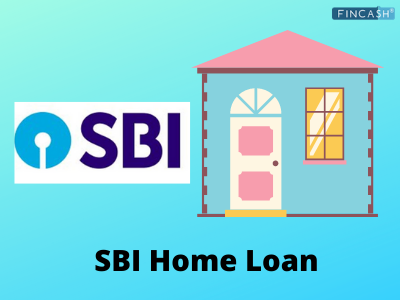Though a home loan is a secured credit option, many lenders practice caution at the time of evaluating the home loan application of senior citizens. It is only because of uncertainty surrounding their income as well as their life span that makes these lenders are thoroughly cautious while assessing the applicant’s application for a home loan. However, for those reaching their golden years, though SBI home loan eligibility criteria for them would be stringent, it is definitely possible for them to avail themselves of a home loan if they have high creditworthiness. Note that for senior citizens, the requirement for SBI home loan documents may even be higher as compared to an early or mid-aged income earner.
Below, we will mention some of the means as to how sixty-plus individuals can enhance their SBI home loan eligibility or home loan eligibility for other lenders:
Include in a co-applicant
Uncertainty related to life span and income constraints is the main reason for home loan application rejection made by senior citizens. The only possible way to overcome such restrictions is to include a co-applicant for your home loan application. When adding a co-applicant, there are few things to consider, i.e. the co-applicant should be the earning member in your family, drawing a stable income and having a good credit profile. Note that as the age of the primary applicant is high, the offered home loan tenure by many of the home loan lenders, including SBI, would be less. As the income of the co-applicant is also considered when evaluating the home loan application, adding in a co-applicant can increase your SBI home loan eligibility and also help the primary applicant to get a higher home loan amount. However, ensure that any delay or default in the repayment of a home loan holds great chances of negatively affecting not only the primary borrower’s credit score but also the credit score of the co-borrower.
Choose a lower LTV ratio.
LTV ratio is that portion of the property’s value that gets processed as a home loan by the lender. The rest of the property value needs to be funded by the home applicant in the form of a down payment. According to RBI rules, the maximum home loan LTV ratio can go up to 75 % to 90% of the home loan value of the property. The final LTV ratio of a home loan gets set based on the lender’s risk evaluation and loan amount needed by the home loan applicant. As a lower home loan LTV ratio lowers the lender’s credit risk, a sixty-plus individual simply can enhance their SBI home loan eligibility by paying a higher down payment for a home loan. Choosing a higher down payment option automatically reduces the LTV ratio and also lowers the size of the loan amount required for a home loan.
Assess your SBI home loan eligibility by evaluating your EMI affordability before submitting the final loan application
Application approval for a home loan is based upon the lender’s assessment of the home loan applicant’s EMI repayment capacity. Usually, lenders like SBI prefer the applicant’s EMI, including the new and existing loan EMIs to be within 50 to 60 per cent of the home loan applicant’s monthly income. Thus as a home loan applicant, you need to know the optimum EMI you can repay comfortably towards your home loan before making the final application. Ensure that the home loan’s EMI is dependent directly on the loan repayment tenure, loan amount and interest rate. Higher home loan EMI leads to lower repayment tenure as well as lower interest cost, while choosing lower home loan EMI results in higher home loan tenure and higher interest cost. SBI home loan applicants or other applicants of home loans can easily know their home loan EMI through online calculators and adjust their tenure to get the optimum tenure based upon their capacity to repay the EMI. When trying to find out your optimum home loan amount, applicants should also consider their monthly contributions to financial goals, unavoidable expenses and medical expenses. Placing an application for a home loan once you know your optimum home loan EMI will enhance your SBI home loan eligibility or home loan eligibility for other lenders, which would help you avail approval by lenders easily. This, in turn, would even reduce your chances of committing EMI defaults because of strict repayment schedules.
Build a good credit score equalling 750 and above
SBI home loan eligibility or home loan eligibility for other lenders automatically increases for applicants with a high or good credit score of 750 & above. It is because those with a score of 750 and above are looked at as financially responsible, meaning they have lower credit default risk, which actually enhances their SBI home loan eligibility chances or eligibility chances for other lenders home loans. However, the ones with lower credit scores of less than 750 have increased credit default risk because of their incorrect financial habits and have considerably lower chances of home loan approval. Many of the lenders also have started providing lower rates to the ones with a higher score. Thus, if you are looking to opt a home loan, ensure to check your credit report by approaching either online financial marketplaces or credit bureaus before you make the final home loan application submission. Taking this route would allow you to view errors or transactions in your credit report, which you can report to your lenders or bureaus for rectification. A rectified credit report can help your credit score to increase, which further assists in boosting your SBI home loan eligibility chances.
Other factors that may affect your SBI home loan eligibility chances or home loan eligibility chances for other home loan lenders:
Income
Income is an important factor considered by lenders when deciding your home loan eligibility. If your annual income is on the higher end, your eligibility chances for a home loan would also be higher, owing to the fact that you might have a higher capacity to repay. Even your requirement for a maximum home loan amount might be increased if your earnings are on the higher end.
Debt obligation
For those with higher debt obligations, their chances of home loan approval are lower because lenders might think you may not have the needed surplus amount for mitigating your home loan EMIs.





Be First to Comment